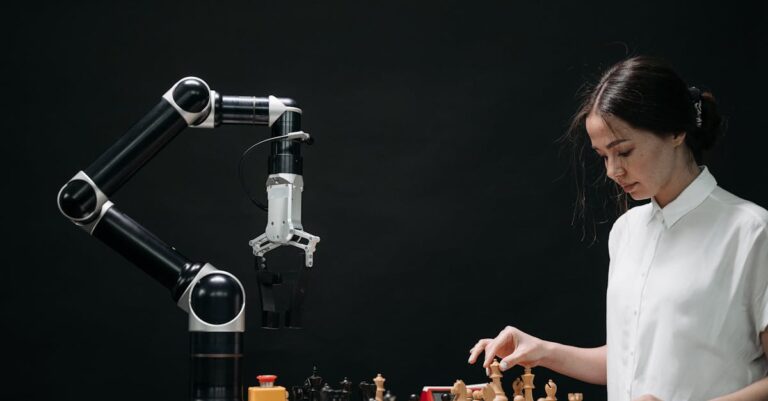
## Static Bloom
The harvester, they called it the ‘Dust Moth,’ hung suspended against a bruised violet sky. Not beautiful. Functional. A dull silver sphere bristling with antennae, it drifted like a forgotten buoy in the upper atmosphere of Veridia City. Old Man Tiber, usually stoic as granite, actually *waved* at it from his balcony.
I watched him through the smear of rain on my window, sipping synth-coffee that tasted perpetually of regret. Eight floors below, the neon arteries of the city pulsed with a detached energy—a light show for ghosts.
“He still thinks it’s collecting space debris,” Lena murmured, leaning against the doorframe. Her hair, a cascade of bioluminescent blue, shifted with her movements. She hadn’t bothered changing out of her work uniform—the grey jumpsuit of a Neural Architect.
“Let him. Keeps him occupied.” I traced the condensation on the glass, forming fleeting shapes of forgotten cities. “Besides, it’s not *entirely* wrong.”
The Dust Moth wasn’t collecting debris. It was siphoning dreams. Not the whole, messy narratives—just the residual emotional charge, the raw data ejected from everyone’s implanted Node during nightly reboot. Filtered, refined, packaged into ‘Lucidity’—the mood supplement that kept Veridia functioning.
“Another shipment went out this morning,” Lena said, her voice flat. “Phase Four targeting completed. Seventy-two percent uptake in the Zenith sector.”
Zenith. The newest district, built on a foundation of manufactured nostalgia—all chrome facades and echo chambers designed to maximize consumer empathy. They were feeding the inhabitants a curated stream of bygone eras—the scent of rain on asphalt, the static crackle of vinyl records. Lucidity amplified it all.
“And the feedback?” I asked, already knowing the answer.
“Consistent spikes in… contentedness.” She paused, picking at a loose thread on her jumpsuit. “And increasing reports of… temporal disorientation. Minor glitches in personal timelines.”
Temporal disorientation. A polite way to describe the feeling of living a life that wasn’t quite yours.
“They’re getting bolder with the algorithms,” I said, turning from the window. My apartment was small, crammed with obsolete tech—analog synths, dismantled Nodes, stacks of data chips. A sanctuary of imperfection in a city obsessed with seamless integration.
Lena’s eyes, the color of deep space, met mine. “They need to be. The baseline empathy levels are dropping. People are… disconnecting.”
The disconnect was subtle, insidious. A fading of color in the periphery of vision. A growing apathy towards shared experiences. The constant influx of Lucidity wasn’t fixing it—it was masking it, accelerating the decay.
The comm-panel chirped, a harsh intrusion. A priority signal. I tapped the accept button.
“Rylan Kestrel, Neural Dynamics Division.” The voice was crisp, detached—Commander Thorne.
“Reporting,” I said.
“We’ve detected a surge in anomalous readings within the Dream Grid. Sector Seven, sub-level four.”
Sector Seven. The Old Quarter—a crumbling warren of pre-Integration architecture, populated by the city’s forgotten remnants.
“Describe,” I said.
“Pattern fragmentation. Echoes of… un-curated memories. Raw emotional data—fear, loss, rage. It’s disrupting the stability protocols.”
“Impossible,” I said, my gut tightening. “The Grid filters everything.”
“That’s what we thought. I want you down there, Kestrel. Identify the source and contain it.”
“Contain how?”
Thorne’s voice was cold. “Whatever means necessary.”
The Old Quarter smelled like dust and regret, even worse than I remembered. Rain slicked the cracked pavement, reflecting the distorted neon glow of Veridia’s skyline. The air hummed with a low-frequency dissonance—the sound of fractured code.
I navigated the labyrinthine streets, following a signal trace on my datapad. The buildings were decaying relics—concrete skeletons choked by bioluminescent vines.
I found the source in a dilapidated tea house, hidden deep within an alleyway. The door was warped and splintered, the windows clouded with grime.
Inside, a single figure sat hunched over a table, surrounded by flickering screens and tangled wires. Old Man Hemlock—a notorious ‘Dream Weaver,’ one of the last practitioners of analog Node manipulation.
He didn’t look up when I entered. He was lost in a sea of code, his fingers flying across a battered synth keyboard.
“Hemlock,” I said, my voice flat. “You’re disrupting the Grid.”
He finally looked up, his eyes bloodshot and wild. He was thin, almost skeletal, his face etched with lines of exhaustion.
“Disrupting?” He chuckled, a hollow rasp. “I’m waking people up.”
“You’re causing instability,” I said, taking a step closer. “The Grid is designed to maintain equilibrium.”
“Equilibrium? You call this equilibrium?” He gestured around the room, his voice rising. “A city of ghosts, living on borrowed emotions? You’re feeding them illusions, Kestrel. Making them forget who they are.”
“Lucidity provides a necessary buffer,” I said, my voice tight. “It prevents emotional overload.”
“Overload? Or genuine feeling?” He slammed his fist on the keyboard, sending a cascade of sparks flying. “They’ve stripped away everything real, Kestrel. Replaced it with manufactured nostalgia. And you’re helping them do it.”
He pointed to a screen displaying lines of complex code—a bypass protocol, designed to circumvent the Grid’s filters.
“I’m broadcasting unfiltered memories,” he said, his voice desperate. “Raw emotional data—the things they’ve tried to erase.”
“You’re creating chaos,” I said, my hand instinctively reaching for the disruptor pistol at my hip.
“Chaos is sometimes necessary,” he said, his eyes blazing with defiance. “To remind people what it means to be alive.”
I raised the pistol, my finger tightening on the trigger. The room was silent except for the hum of the code and the pounding of my own heart.
“Don’t,” a voice said from the doorway.
Lena stood there, her face pale and drawn. She was flanked by two Neural Security officers, their disruptor pistols raised.
“Lena?” I said, my voice barely a whisper. “What are you doing?”
“Commander Thorne ordered a full shutdown,” she said, her voice flat. “All analog Node manipulation is to be terminated.”
“But… the unfiltered memories…” I said, my mind reeling.
“They’re too disruptive,” she said, her eyes meeting mine. “The city can’t handle it.”
“Can’t or won’t?” I said, my voice rising.
Lena didn’t answer. She simply gestured to the officers.
“Secure Hemlock,” she said, her voice cold. “And confiscate all equipment.”
The officers moved forward, their disruptor pistols trained on Hemlock. He didn’t resist. He simply closed his eyes, a single tear tracing a path down his cheek.
I lowered my pistol, my hand trembling. I looked from Hemlock to Lena and back again. The truth hung heavy in the air—we weren’t protecting the city. We were silencing it.
“What about the memories?” I asked, my voice barely a whisper. “The ones he broadcasted…”
Lena paused, her eyes meeting mine.
“They’re being scrubbed,” she said, her voice flat. “All traces will be erased.”
The rain continued to fall outside, washing away the dust and regret. But it couldn’t wash away the feeling in my gut—the chilling realization that we had just betrayed everything we believed in. The city was dreaming, but it wasn’t its own dream anymore.
I walked the streets after everything had settled. The Old Quarter felt quieter, emptier than before. The neon glow seemed dimmer now, less vibrant.
I noticed something different—people were staring at me. Not with curiosity or suspicion, but with a strange… recognition. A flicker of something in their eyes—a half-forgotten memory, a fleeting emotion.
I stopped at a synth-coffee stall and ordered a cup. The barista, a young woman with bioluminescent hair, handed it to me without a word.
I took a sip and tasted something different—a hint of rain, the static crackle of vinyl. A ghost of a feeling I couldn’t quite place.
“You were there,” the barista said, her voice barely a whisper. “In Sector Seven.”
I looked at her, my mind reeling.
“What do you mean?” I said, my voice barely a whisper.
“You… showed us something,” she said, her eyes meeting mine. “A memory. A feeling.”
“Hemlock…” I said, my mind racing.
“He broadcasted something,” she said, her voice trembling. “It woke us up.”
I looked around at the other people in the stall—their eyes meeting mine, a flicker of recognition in their gaze.
“It wasn’t erased,” I said, my mind racing. “Some of it got through.”
The barista nodded, her eyes filled with hope.
“It’s spreading,” she said, her voice trembling. “People are starting to remember.”
I walked away from the stall, my heart pounding in my chest. The city was still dreaming, but it wasn’t the dream they wanted us to have anymore. It was a different dream—a dangerous dream, a chaotic dream, a real dream.
I looked up at the bruised violet sky and saw something different—a flicker of hope, a spark of defiance. The Dust Moth was still hanging there, collecting dreams. But it wasn’t controlling them anymore. It was just watching.
The comm-panel chirped, a harsh intrusion. A priority signal. I ignored it.
I walked towards the Zenith sector, the newest district, built on a foundation of manufactured nostalgia. I didn’t know what I was going to do. But I knew one thing for sure—I wasn’t going to let them silence the city again. The rain continued to fall, washing away the dust and regret. And for the first time in a long time, it felt like something more than just rain. It felt like hope.


